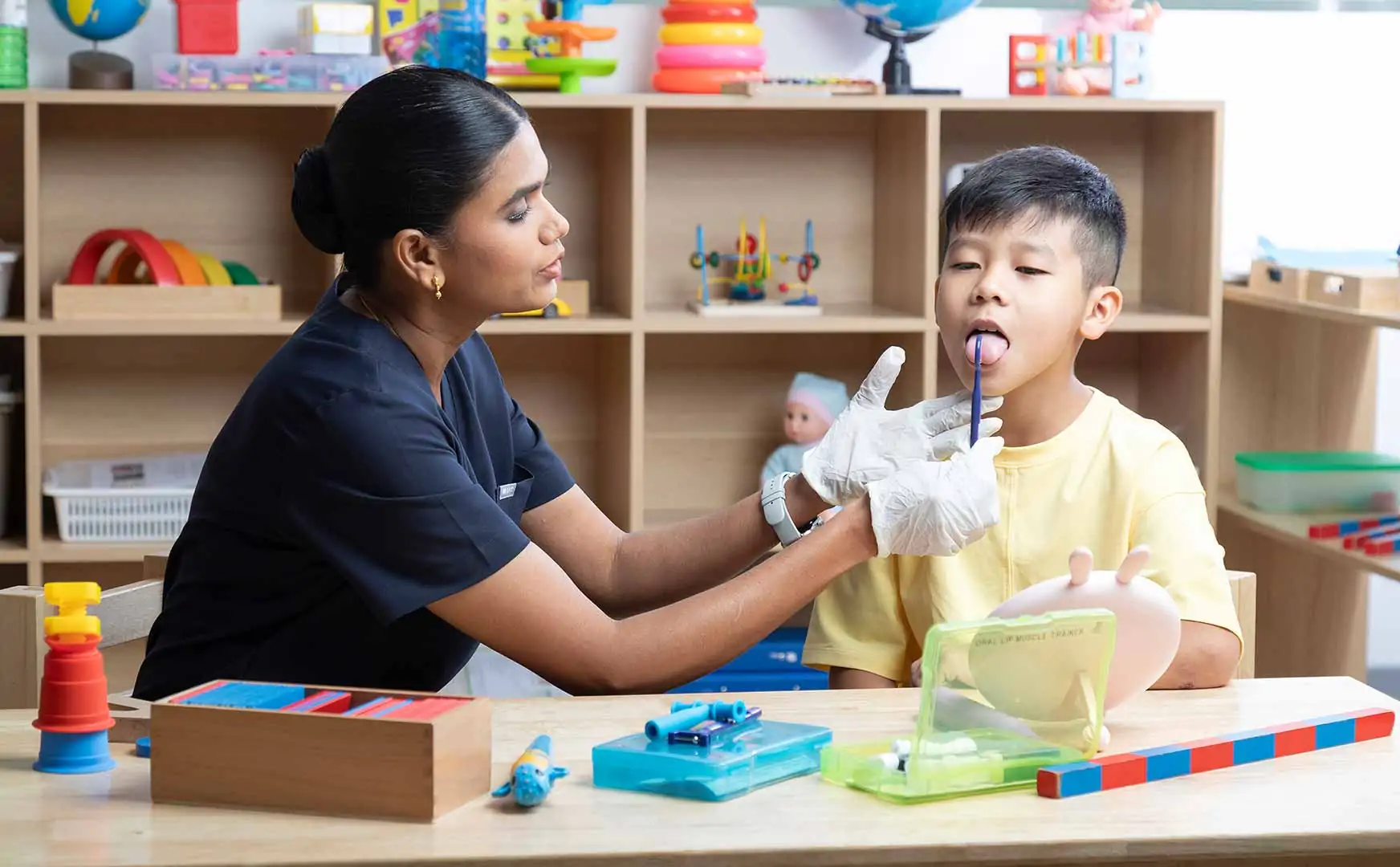When a child begins speech therapy, it can change the rhythm of family life—especially for siblings. While parents focus on helping one child strengthen their communication skills, brothers or sisters may feel confused, left out, or even jealous of the extra attention. In Cambodia, where families often share close-knit bonds, supporting all children equally during the speech therapy journey is essential for maintaining harmony and emotional balance at home.
This article explores how to support siblings of children in speech therapy, providing practical tips that encourage empathy, inclusion, and understanding among family members.
Understanding the Sibling Experience
Siblings play a powerful role in shaping a child’s communication environment. However, they may not always understand why their brother or sister is going to therapy or why they get extra time with parents or teachers.
Some common emotions siblings may experience include:
-
Confusion: Not understanding why their sibling talks differently or needs special help.
-
Jealousy: Feeling that the sibling in therapy gets more attention.
-
Guilt: Believing they caused or could have prevented the speech difficulties.
-
Pride: Feeling proud of their sibling’s progress when included in the process.
Acknowledging these emotions is the first step to creating a positive family dynamic that supports everyone’s growth.
1. Involve Siblings in the Speech Therapy Journey
Involving siblings helps reduce misunderstandings and fosters empathy. Parents can explain what speech therapy is in simple, age-appropriate language—something like, “Your brother is learning how to make new sounds and words with help from a special teacher.”
You can also let siblings observe or participate in some therapy-related games at home. Many activities suggested by therapists—such as singing, storytelling, or playing naming games—can include the whole family.
For example, if your child is receiving therapy at OrbRom Center’s Speech Therapy Program, ask your therapist about family-inclusive exercises. Simple daily routines like meal conversations, bedtime reading, or storytelling can turn into shared learning experiences that strengthen both communication and sibling bonds.
2. Create Equal Time and Attention
Balancing attention is key. While therapy sessions and home practice take time, make sure siblings also get moments of focused connection with you—reading together, going for a walk, or cooking a meal. These one-on-one interactions reassure them that their needs and emotions are equally valued.
It’s also helpful to set aside “family fun time” where therapy isn’t the main focus. Activities such as art, cooking, or outdoor play can help reinforce unity and prevent feelings of exclusion.
If your schedule feels overwhelming, occupational therapy at OrbRom Center can help children build self-regulation skills, reducing frustration and improving family interactions through structured play and sensory integration.
3. Educate and Empower Through Understanding
Knowledge empowers children to replace curiosity or worry with compassion. Encourage siblings to ask questions, and answer them honestly but gently. Books, videos, or therapist-led discussions can help children understand speech differences and communication styles.
For example, many speech-language pathologists at OrbRom Center explain communication challenges through games or visual aids, helping siblings learn that speech therapy is not a punishment—it’s support.
You might also share positive progress, such as, “Your sister said her first full sentence today!” This helps siblings celebrate small victories and fosters teamwork in the family.
To further understand what happens during therapy sessions, parents can read What to Expect When Meeting a Speech-Language Pathologist for insight into how communication goals are addressed in professional settings.
4. Encourage Teamwork at Home
Siblings can be wonderful language models and motivators. Encourage them to help in simple ways—like repeating words, modeling clear speech, or praising efforts (“Good job saying that word!”).
At home, use everyday routines for shared practice:
-
Playtime: Turn speech exercises into games that everyone enjoys.
-
Storytime: Let siblings take turns reading aloud.
-
Music time: Singing songs together helps rhythm and pronunciation.
When guided positively, these interactions can build mutual respect and strengthen bonds between siblings. You can find more ideas in Top 10 Speech Therapy Exercises You Can Try at Home.
5. Support Emotional Expression
Therapy journeys can bring big emotions—for both the child in therapy and their siblings. Encourage open conversations about feelings. Use “I” statements like, “I feel sad when I can’t play with you during therapy,” to teach empathy and communication.
If emotions become overwhelming, consider consulting professionals who can assess overall family dynamics. The Assessment Services at OrbRom Center offer developmental insights that guide parents toward well-rounded emotional and educational support.
6. Foster a Culture of Inclusion
In Cambodia, family and community are central to a child’s identity. When siblings are encouraged to take part in supporting each other, children learn compassion, patience, and social understanding—skills that extend beyond therapy.
Inclusive family routines—like greeting visitors together or helping each other with homework—make every child feel important and capable, regardless of their speech abilities.
If your child attends a preschool program or after-school activity, inform teachers about the therapy goals. Coordinated efforts between families and schools—like those offered through OrbRom Center’s Preschool Program—ensure siblings and classmates all play a role in fostering communication growth.
Conclusion
Supporting siblings of children in speech therapy is about more than balancing attention—it’s about nurturing understanding, empathy, and teamwork within the family. When siblings feel valued and included, they become allies in their brother or sister’s progress.
In Phnom Penh and across Cambodia, families can access professional support through centers like OrbRom Center, where therapists work not only with children but also with parents and siblings to create a truly inclusive environment. By fostering awareness and unity at home, you help every child grow—together.
We are the only Preschool specialized on children with special needs in PhnomPenh.
- Internationally qualified teachers
- Cambodia’s largest sensory room
- Outdoor swimming pool
- Covered outdoor playground
📞 Phone: 077.455.993
Telegram Link: https://t.me/OrbRom








Leave A Comment